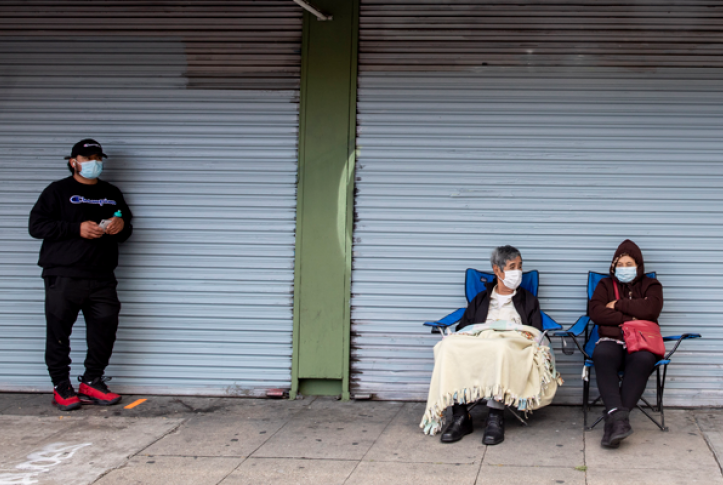The Issue
As COVID-19 continues to ravage the globe, the United States faces renewed scrutiny for the stark disparities in health and economic impacts experienced by people with lower incomes and by Black and Latino communities. In other countries, the crisis has highlighted the need for greater resiliency of national health systems to ensure access to care.
To compare the health experiences of adults with lower income during the pandemic and the effect of income-related disparities, the Commonwealth Fund surveyed adults across 11 high-income countries: Australia, Canada, France, Germany, the Netherlands, New Zealand, Norway, Sweden, Switzerland, the United Kingdom, and the U.S. The results of the survey, conducted during the early part of the pandemic between February and May 2020, were published in the December 2020 issue of Health Affairs.
What the Study Found
- In nearly all countries, adults with lower income were significantly more likely than those with higher income to have multiple chronic health conditions. However, on nearly every measure the study used, income-related disparities were greatest in the U.S.:
- More than one-third (36%) of U.S. adults with lower income have two or more chronic conditions — significantly more than in other countries.
- Approximately one-third of adults with lower income in the U.S. (36%), Australia (36%), and Canada (34%) reported having anxiety or depression, the highest rates in the survey. Their counterparts in Germany (14%) and Switzerland (15%) were the least likely to report anxiety or depression.
- More than one-quarter (28%) of U.S. adults with lower income said that, in the past year, they worried about being able to afford basic necessities such as food or housing, a significantly greater proportion than seen in other countries, where 6 percent to 22 percent reported this.
- Half of U.S. adults with lower income don’t get needed care because it’s too costly. In the survey, 50 percent reported skipping doctor visits, recommended tests, treatments or follow-up care, or prescription medications in the past year because of the cost. In contrast, just 12 percent to 15 percent of adults with lower income in Germany, the U.K., Norway, and France reported doing the same.
These findings could serve to further educate the American public about the growing U.S. health disadvantage relative to other high-income countries.
- Difficulty in paying medical bills is mostly a U.S. phenomenon, with 36 percent of U.S. adults with lower income reporting this problem, compared to 7 percent to 16 percent in the other countries.
- In most countries, virtually all adults with lower incomes reported having a regular doctor or place of care. Rates in the U.S., Canada, and Sweden, meanwhile, ranged from 85 percent to 89 percent.
- Same-day and next-day appointments: About four in 10 adults with lower income in the U.S., Canada, New Zealand, and Norway were able to get a same- or next-day appointment to see a doctor or nurse when they were sick. In contrast, 74 percent of those in Germany and 63 percent those in the Netherlands were able to get this care.
- After-hours care: The Netherlands stands out, with only 35 percent reporting difficulty getting after-hours care without going to the emergency department (ED). In all other countries, between 43 percent and 64 percent of lower-income adults reported this problem (58% in the U.S.).
- Emergency care: Forty-five percent of U.S. adults with lower income reported using the emergency department in the past two years to get care that could have been delivered by their regular doctor had it been available. That is a significantly higher rate than in Australia, France, Sweden, and the U.K.
The Big Picture
Achieving greater health equity in the U.S. will likely require policies that extend insurance coverage, make health care easier to afford, and strengthen primary care. The study authors also say that greater investments are needed to address the social determinants of health — factors beyond traditional health care, such as housing, education, and nutrition, that also affect people’s health. The U.S. in particular, they say, has much to gain from examining the experience of countries where universal health coverage ensures people have access to affordable health care.
The Bottom Line
Income-related health disparities exist in all high-income countries but are far worse in the United States. And they may be undermining U.S. efforts to respond to the pandemic, including prospects for effective vaccination of the U.S. population.
